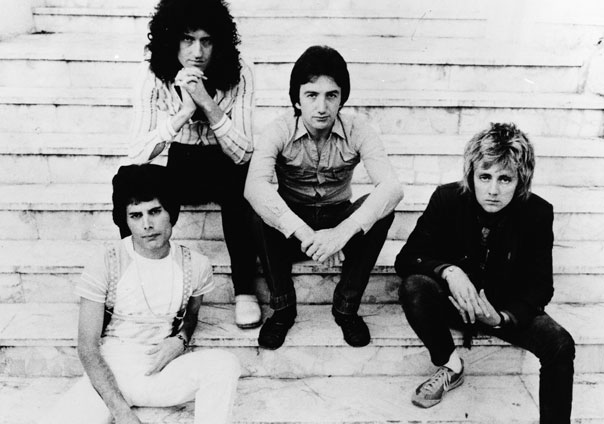It was David Bowie who, in 1976, posited the view that “Adolf Hitler was the first rock star”. It’s tempting to dismiss this as the facile ravings of a coked-up rock star. But Bowie was touching on an inescapable truth. Live rock’n’roll has always had something of the totalitarian about it. Queen exemplified this better than any other group of their era. Critics hated them for it: after the Sun City debacle, the NME castigated the band’s “I Want To Break Free” and “Radio Gaga” videos for their “vile, pseudo-fascist imagery” and accused Queen of evoking the atmosphere of a Nuremberg rally. But just when it seemed they’d used themselves up, Live Aid offered Queen a chance to test just how far they could extend themselves in front of a TV audience of nearly two billion. Their response to charges of stadium bombast and epic folly was to up the ante as they stormed their way through a bravura set that included “Bohemian Rhapsody”, “Radio Gaga”, “Hammer To Fall”, “Crazy Little Thing Called Love”, “We Will Rock You” and “We Are The Champions”.
As Geldof tells it: “Live Aid gave Freddie Mercury the chance of poncing about in front of the world. They were absolutely the best band on that day. It was the perfect stage for them and they seemed to instinctively know that. It was as if they were the only act who grasped the fact that this was a global jukebox and they had to be the biggest and the loudest if people were going to sit up and take notice.”
The whole of Queen’s career had been leading up to their show-stealing 20-minute set on July 13, 1985 – and everything led away from it. Having pummelled the planet into submission by the supercharged verve of their performance that day, maybe there was nothing left to prove. Post-1985, there would be huge Queen tours, including the following year’s Kind Of Magic extravaganza, which Roger Taylor described as “the sort of thing that makes Ben Hur look like The Muppets”, and which saw Mercury take the stage in ermine-lined cloak and jewelled crown. There would also be global hits like “I Want It All” and “Innuendo”. Even so, everything Queen did after Live Aid couldn’t help but look and sound like an anti-climax.
Meanwhile, that terrible shadow was closing in. By 1987, the AIDS virus had been common knowledge for at least four years, though Mercury had steadfastly refused to compromise his hedonistic lifestyle. It was an attitude he would be forced to revise in early ’87 when two of his close friends died of AIDS. Then, around Easter of that year, he tested positive himself, at first choosing to share the dreadful news only with his boyfriend, Jim Hutton.



